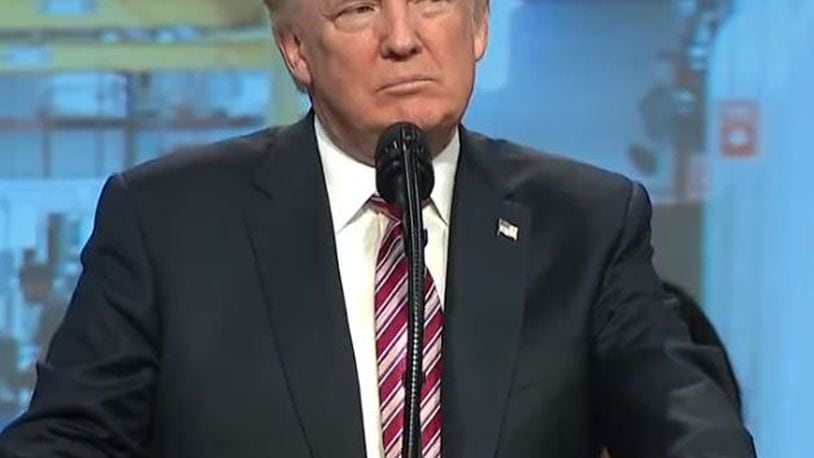Mr. Trump suggested funneling those savings into more tax relief for middle class Americans.
The President also requested a top income tax rate of 35 percent - that is the rate in the House tax reform bill, but the Senate's top rate would be 38.5 percent, down slightly from the current 39.6 percent.
Here was Mr. Trump's tweet from the Philippines, where he is wrapping up an extended trip to Asia:
As of now, GOP leaders have no plan to add any provision about the individual mandate, which requires people to buy health insurance, or face a tax penalty under the Obama health law - but the idea has drawn support from more conservative Republicans, who are still frustrated by the failure to get a health overhaul bill through the Congress this year.
"The IRS tax, the individual mandate from Obamacare is profoundly unfair," said Sen. Ted Cruz (R-TX) at an event last week on tax reform. "Each year, the IRS fines about 6 million people because they don’t have enough money to afford health care."
"That is profoundly unfair. We need to repeal that," Cruz added.
Despite some talk from Cruz and others about adding an individual mandate provision, the House Ways and Means Committee last week never considered adding the provision; theoretically that could still change before the bill gets to the House floor later this week, but it is considered a long shot.
Meanwhile, of the 355 amendments filed to the tax reform bill in the Senate Finance Committee, none of them deal with the individual mandate, either.
So far, there has been little apparent progress in getting Democrats on board with the GOP tax plan, and the President's push to include a provision on the individual mandate, as well as a lower top rate, would certainly not be something Democrats would see favorably.
"This tax bill might be the biggest upward wealth transfer in American history, and all during a second gilded age," said Sen. Brian Schatz (D-HI).
The President is set to return from his overseas trip on Tuesday, which will allow him to help lean on any Republican lawmakers in the House, as GOP leaders try to squeeze out the last few votes for tax reform legislation - but some also fear that Mr. Trump's last minute declarations could cause some turmoil on the final details of the plan.
The House bill would cut taxes by an estimated $5.8 trillion over 10 years. But it would also raise taxes by $4.3 trillion in that same time period.
About the Author
